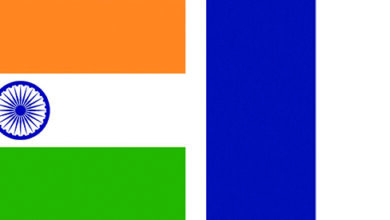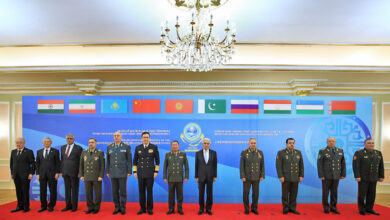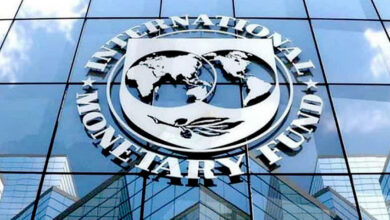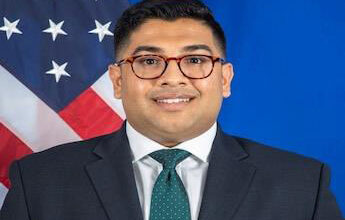India Blames China for No Entry to NSG at Seoul, Looks Ahead
New Delhi. India’s application to join the NSG did not get approved at Seoul, despite intensive diplomatic efforts through June, spearheaded by the Prime Minister himself.
That the Indian foreign policy establishment is upset with the outcome of the Seoul plenary session of the Nuclear Suppliers Group is an understatement. The Government is viewing the rejection as a snub by China, particularly after Prime Minister Narendra Modi travelled to Tashkent specially to confer with Chinese President Xi Jinping.
Admittance to the group requires unanimity, and it was easy for China to put in “procedural” hurdles. Officially, India did not name China but blamed “one country” for repeatedly putting procedural hurdles.
This outcome was expected as Pakistan is China’s only military ally, both are pitted against India in regional diplomacy, and China clearly said if NSG membership is being given to India, then it must go to Pakistan also. It doesn’t matter to Beijing that unlike India, which has an impressive record on being clear and clean of nuclear and missile proliferation, Pakistan is globally accused of being a Nuclear, Missile and Terror Proliferator (NMTP) state.
Notably, the US, which anchored India’s entry into the Missile Technology Control Regime (MTCR), strongly backed India, and has assured that it will continue to support India’s entry into not only the NSG but also into the Wassenaar Arrangement and Australia Group. India is keen to seal the membership deal while Mr Obama is still President of the United States as the two countries have become quite close over the last few years.
There are indications that the NSG could meet before year-end and take a call again on the Indian application for membership. US diplomats concede that while Washington will lend its weight in favour of India, New Delhi will have to work with Beijing. Notably, India does not oppose Pakistan’s entry into the NSG, but then, it is up to the NSG member states to take a call on Pakistan’s track record.
Pakistan’s case has to be considered independently.
Argentinian Ambassador and outgoing NSG chairman Rafael Grossi has said in a newspaper interview: “We came to Seoul thinking that we could take a decision (on India’s application), there and then. Some said that was possible, but there were many questions that had to be answered. And some others felt that there must be a prior and thorough discussion before we decide.”
By and large, although a small number of countries opposed India’s immediate membership, there was overwhelming support for New Delhi. Mr Grossi now has a key role in trying to build an agreement within the NSG for a possible special plenary later this year.
Argentina, along with some other countries, has informally been discussing an alternative arrangement in which a time-bound working group would lay down the benchmarks for non-NPT countries like India to join the grouping. A meeting of the NSG plenary could be held once that is decided, before the end of the year.
The US is “disappointed” that India was not admitted to NSG, said US Ambassador to India Richard Verma said June 27, while addressing the Atlantic Council US-India Trade Initiative workshop. Emphasising Washington’s strong support for India’s role in global institutions, Verma asserted that it would continue to work with all the members of 48-nation grouping on India’s accession in the months ahead.
“With regard to the Nuclear Suppliers Group (NSG), six years ago, President (Barack) Obama first expressed his support for India’s membership in the NSG. Since that time, we have worked closely with our Indian counterparts and NSG members to help advance India’s case for membership. India has a strong record, and deserves to be included in the NSG,” Verma said.
“That is why the Administration, including senior White House and State Department officials, made a concerted effort to secure India’s membership in the recent NSG plenary session held in Seoul. We were disappointed India was not admitted during this recent session, but we will continue to work constructively with India and all the NSG members on India’s accession in the months ahead,” the US envoy to India said, indicating that it was possible there would be a favourable outcome by the end of the year.
Another senior Obama administration official affirmed in New Delhi June 30 that the US is committed to India’s membership of the NSG and one country cannot stop international consensus on this. “We are committed to having India in the Nuclear Suppliers Group,” Thomas Shannon, Under Secretary of State for Political Affairs, said in an interaction with diplomats in the Indian capital.
“India’s recent entry into the Missile Technology Control Regime (MTCR) highlights that India is a responsible and important player in non-proliferation,” Shannon said. “We regret that in Seoul, we were unable to open the space necessary to have India in the Nuclear Suppliers Group at this moment.”
Civil nuclear cooperation was, he said, a “very important symbol” of the India-US relationship.
“Where the nuclear question once divided us, today it brings us together,” he said. “Just a few weeks ago, President Obama and Prime Minister (Narendra) Modi welcomed the start of preparatory work on a site in Andhra Pradesh for six AP 1000 reactors to be built by an American company (Westinghouse, now under Japanese management).
“This is expected to provide jobs in both countries and bring clean, reliable electricity that will help meet India’s growing energy needs while reducing reliance on fossil fuels.”
As for China’s insistence on India signing the NPT as a procedural formally, India has stated that it is not on the cards.
Responding to a question from India Strategic, Ministry of External Affairs (MEA) spokesman Vikas Swarup said July 1, “If you look at the statement that they (China) issued, it said that unless India signs the Nuclear Non-proliferation Treaty (NPT), it cannot enter the NSG. I would qualify it as an altogether different process because there is no way that India is signing the Nuclear Non-proliferation Treaty, which we rightly regard as discriminatory.”
Reiterating that it was only China which blocked India’s entry, Swarup said, “We have had bilateral engagements with each of the 48 members of the NSG and on that basis I can say with complete certainty that at the end of the day there was only one country which raised procedural hurdles as a result of which the NSG could not arrive at a decision in favour of India. Some other countries did raise process related issues, but process related issues do not imply that they are opposing India’s membership.”
“As far as that one country (China) is concerned, you have heard what Prime Minister has said in a recent interview, that our objective is to enlarge areas of convergence and reduce areas of divergence and we will continue to impress upon that country that a relationship moves forward on the basis of mutual accommodation of each other’s interests, concerns and priorities,” the MEA spokesman said.
While officials will not comment, it is clear that the BRICS summit scheduled to be held in Goa in October, will not be a completely rosy one, with BRICS partners, Brazil and China and even South Africa, holding out against India at the NSG.
It may be noted that after the 2008 waiver given by the NSG to India for civil nuclear trade, many feel that India does not need to be at the NSG table. Full membership is always preferable and appropriate, a top diplomat told India Strategic.
Although the government has refused to treat this as a policy failure, the MEA spokesman said the outcome was unexpected. “There are some processes that take a long time. I would evaluate the NSG membership process in that category. Yes, we did not get the desired result from Seoul. Probably it is going to take slightly longer,” Swarup said.
He was unusually blunt though in putting the blame on one country, China, albeit without naming it. Chinese foreign ministry though said India was being pampered by the US and western countries.
Swarup also said: “We will keep impressing upon China that mutual accommodation of interests, concerns and priorities is necessary to move forward bilateral ties.”
Notably, at least 38 of the 48 members strongly supported India’s case. Besides the US, France and Britain led the campaign for India’s entry.
Pakistan, which had also applied for NSG membership to follow India, has been gleeful in announcing that it ensured that India did not get membership of the NSG. Pakistani leaders and diplomats conducted a strong campaign against India’s entry into NSG, Pakistani foreign ministry said while thanking its “all weather” ally China.





